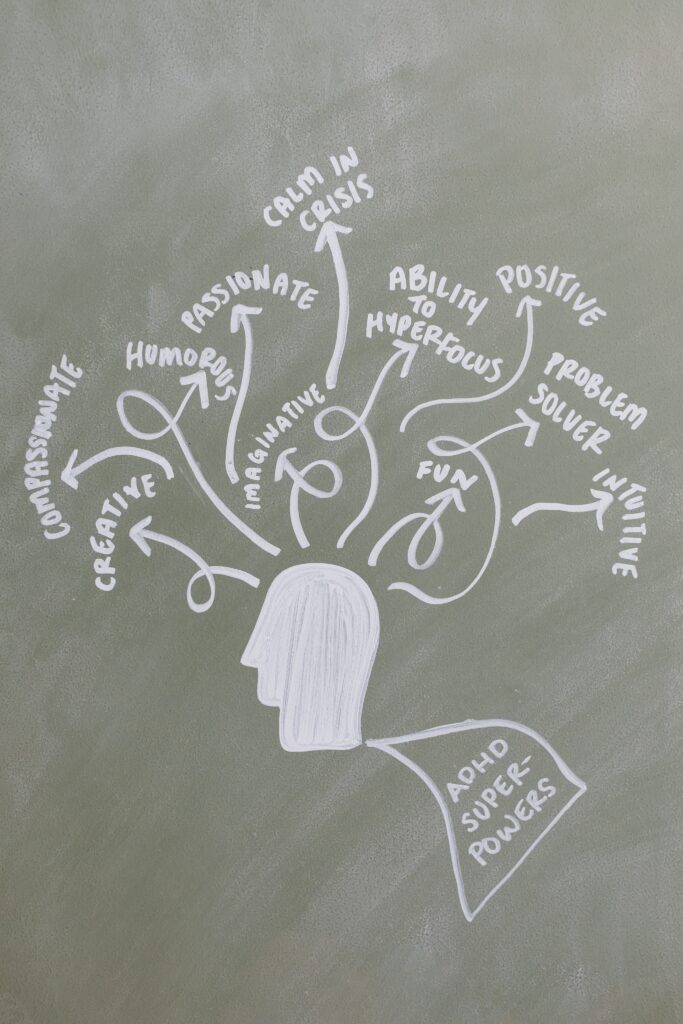
If you as adult have never been evaluated for ADHD as a child, you may have learned or picked up executive function skills through observation or good role modes.
For example:
- making lists on goals for school year
- over-preparing assignments, checking and re-checking
- study over and over, memorise whole chunks for essays
- hyperfocus over long periods before a test
- procrastinate instead of studying if it is boring
When new challenges come, you may struggle because you haven’t learned skills to manage these yet.
For example:
- be on time for university classes: consequently fail exams
- get up on time for work: self-sabotage career prospects
- organise medical appointments: consequently run out of medication
- pay bills or keep track of credit card payments: consequently financial difficulties
- difficult to stop addictive habits and to say no when someone offers you any of the following (drinking, cigarettes, drugs, fast cars, trading stocks, but also seemingly innocuous such as Ebay or video games)
- vulnerable to promiscuity and early pregnancies
- emotional overload, over-reacting to triggers without thinking of consequences, but having to suffer the effects: dropping out of college or work, trouble with police or with the law
- A few definitions of ADHD and autism
- About me
- Adult ADHD examples
- Adults with undiagnosed Autism
- Autistic women and girls
- Blog
- If
- Importance of diagnosis
- Key researchers
- Offending and ADHD
- Privacy Policy
- Professionals with Autism, ADHD or dyslexia
- Terms of use of the website
- Useful links about ADHD
- Useful links about Autism
- Useful links about dyslexia and neurodivergence
- Useful links about mental health for young people